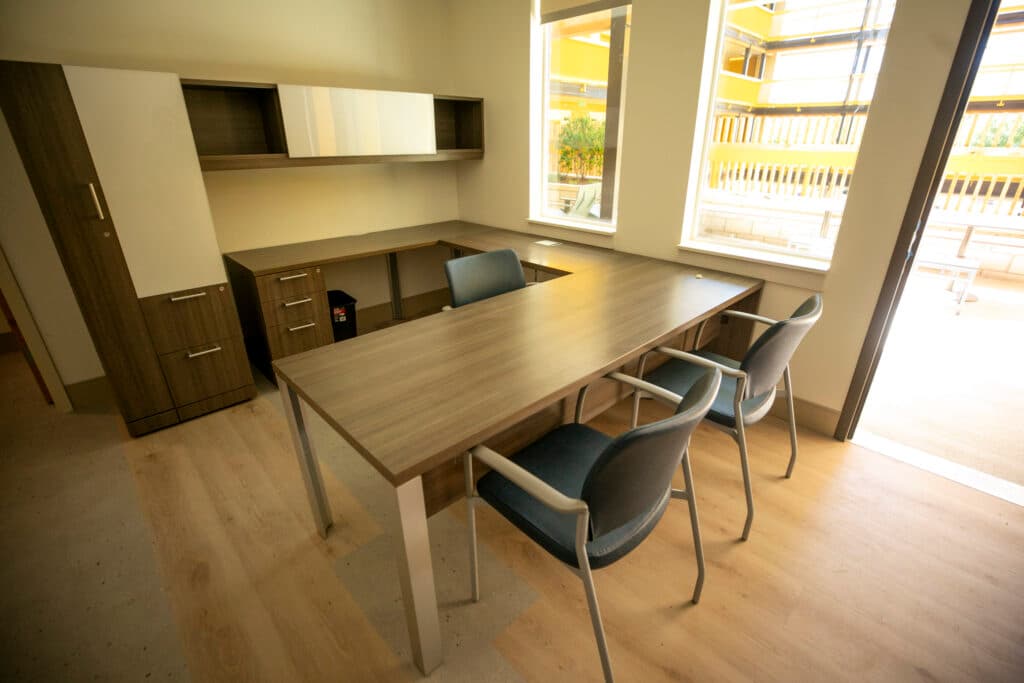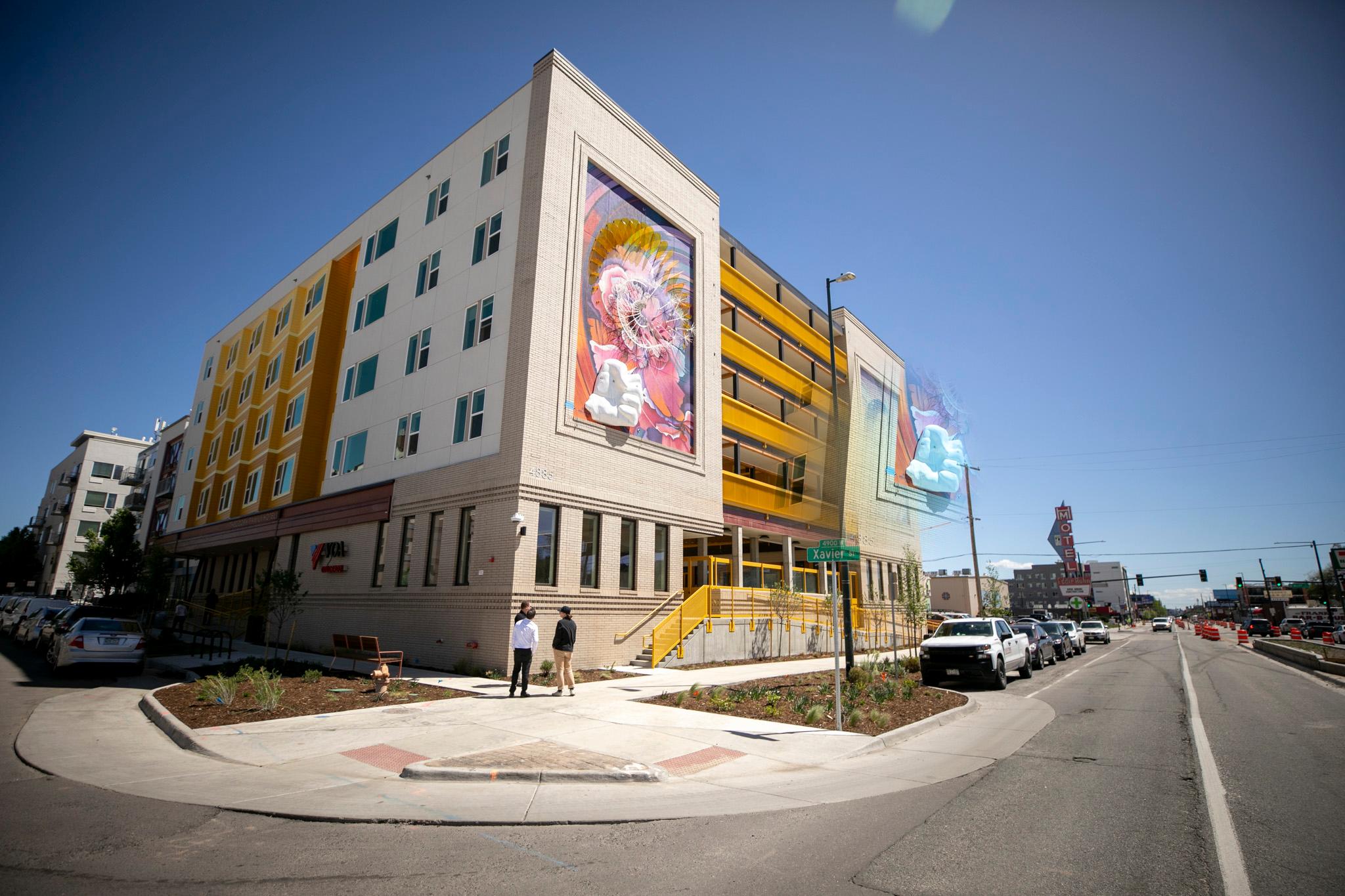A new building is opening on West Colfax Avenue that has room to move 60 families at a time out of homelessness. But Faustine Curry, vice president for nonprofit developer Volunteers of America (VOA), said not to call it a shelter.
“It really is a hotel for our guests,” she told us. “We take them in and they become part of the Volunteers of America family.”
The Theodora Family Hotel replaced the old Aristocrat Motor Motel, a relic from the 1960s that VOA turned into emergency family housing in 1999.
“About five years ago, the City and County came to us again and said, ‘Hey, homelessness for families is increasing. Would you be willing to either build a new site or do something extra to help?’” she said. “This is the finished product.”

The Theodora Family Hotel arrives at a crucial moment for Denver and Colorado.
The city has been keenly focused on solutions for homelessness since Mayor Mike Johnston took office two years ago.
A lot of that work focused on people living in tents encampments, which typically doesn’t include parents with kids. But, last year, the city turned an old Embassy Suites off East Hampden Avenue into a family shelter. It opened 205 rooms for people in need, despite initial outrage from neighbors.
Jamie Rife, Denver’s chief housing officer, said that still wasn’t enough. As of Thursday, she said there were 161 families waiting for help, and families have told Denverite that the wait for shelter is long and frustrating.
“Family homelessness is definitely on the rise,” Rife told us, “so projects like this are really, really important.”
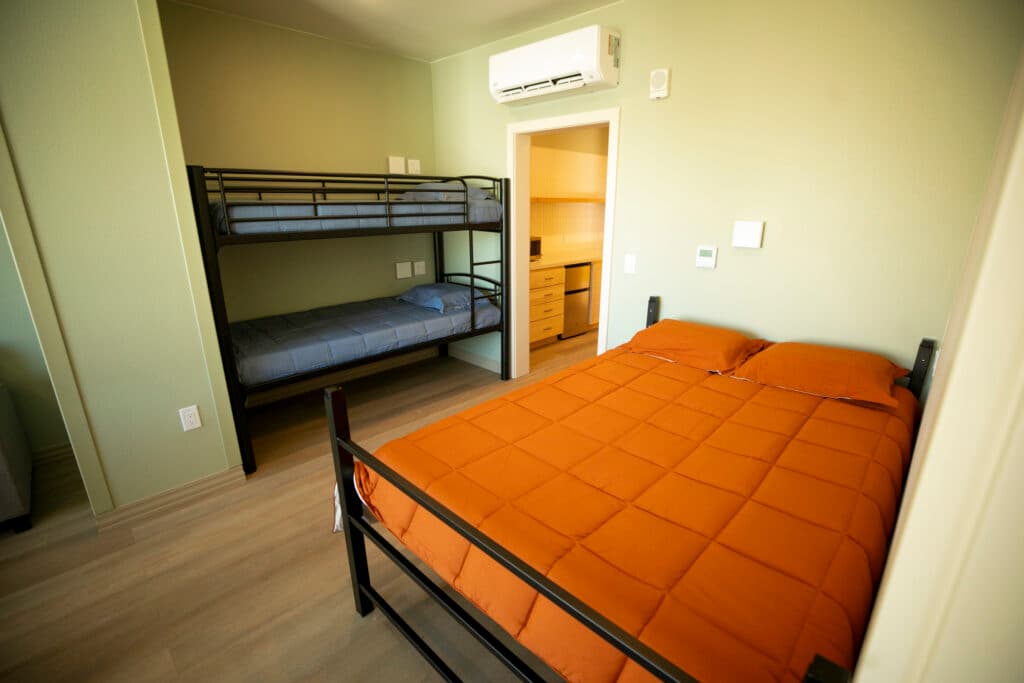
Dave Schunk, VOA’s president and CEO, said Colorado was one of just four states where family homelessness rose in the last three years.
“There's a need to be addressed,” he said. “And this addresses it.”
He noted federal data showing family homelessness in Colorado more than doubled from 2023 to 2024. Some of that trend was driven by the arrival of large numbers of immigrants, mostly from Venezuela, to Denver in the last few years. Many parents and kids ended up in shelters and in tents as the city’s shelter system struggled to keep up with demand.
But the need for more rooms remained. Today, Rife said it’s mostly economic hardship that’s pushing Denverites out of their homes.
“Families specifically can't afford to live here,” she told us. “A lot of them can be successful if they just have a little bit of rental support and rental subsidies.”
She worries that ongoing federal funding cuts will make things worse. While there haven’t been any “official” cuts to federal housing programs, she said, President Donald Trump’s administration has been “signaling” that housing vouchers could be on the chopping block.
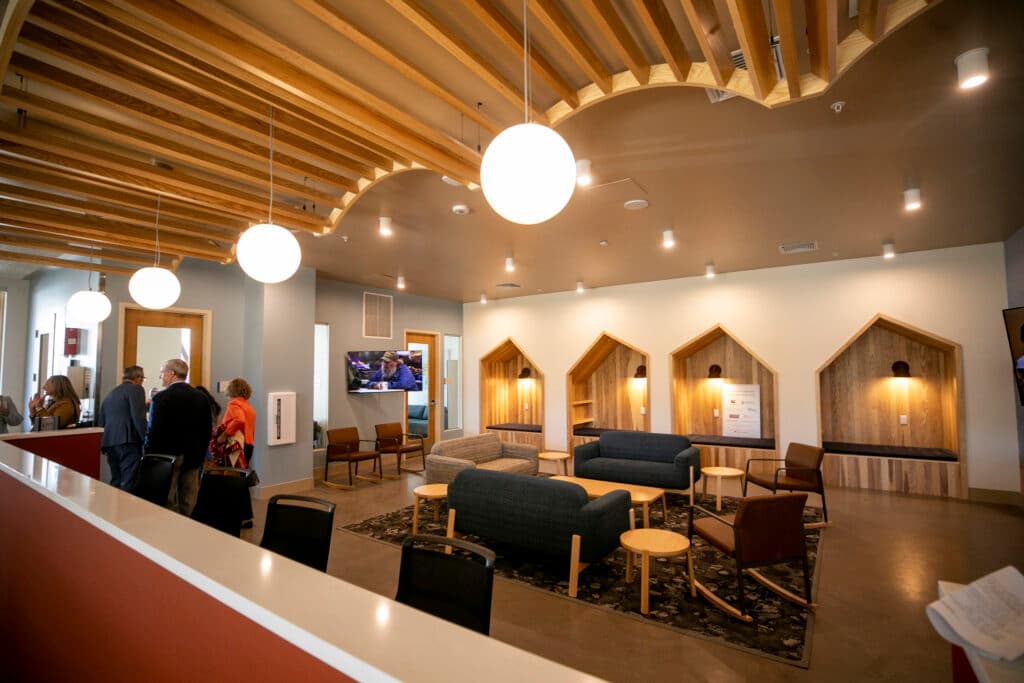
The Theodora is meant to offer more than just a place to stay.
The building is covered with art and glows with an exuberant yellow.
Curry said everything here, from the paint job to the architectural layout, was designed to be trauma-informed, welcoming and kind.
“When you walk around the space, you'll see that it's not just a room,” she said. “We've set it up where it looks like their own apartment, so they can really transition into their own home very smoothly.”
There are multiple beds in each room. Many units are adjoined with their neighbors, she added, in case VOA needs to make room for especially large family units. They don’t have kitchens; instead, Curry said meals will be served in a big, art-filled dining hall that is meant to be a place of connection for residents.
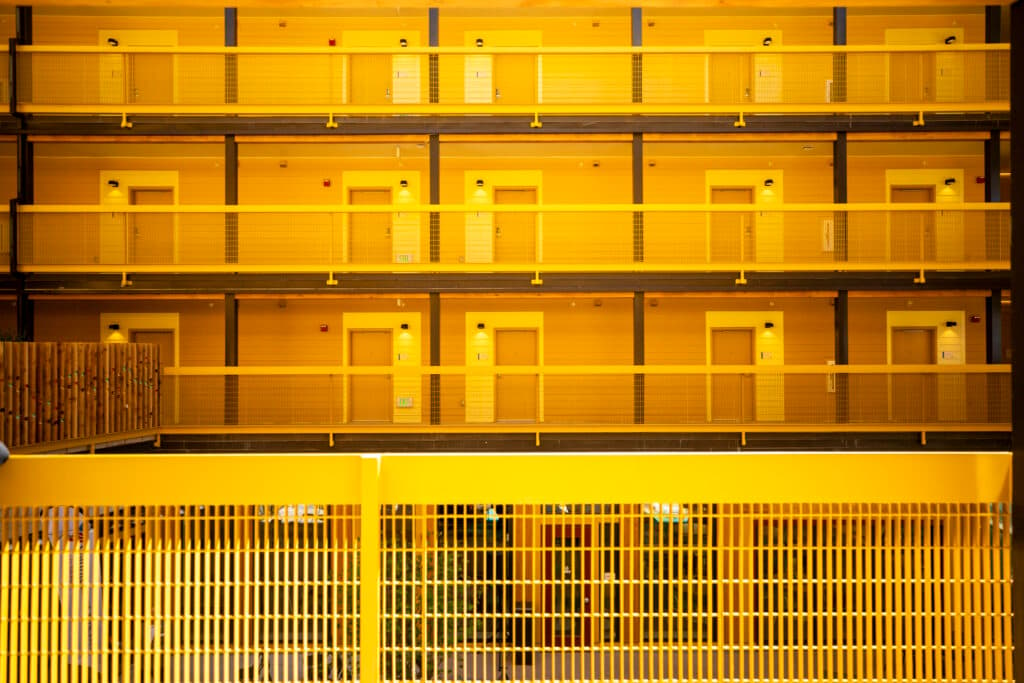
Angel Hurtado, VOA’s chief programs officer, said most people will stay here for about 90 days once it opens on Monday. Families are usually motivated to move out of places like this, she said, and often transition out of shelters relatively quickly.
“We have really high expectations for them to be able to move out,” she said. “Seventy-six percent of our families move on to permanent housing, more stable housing.”
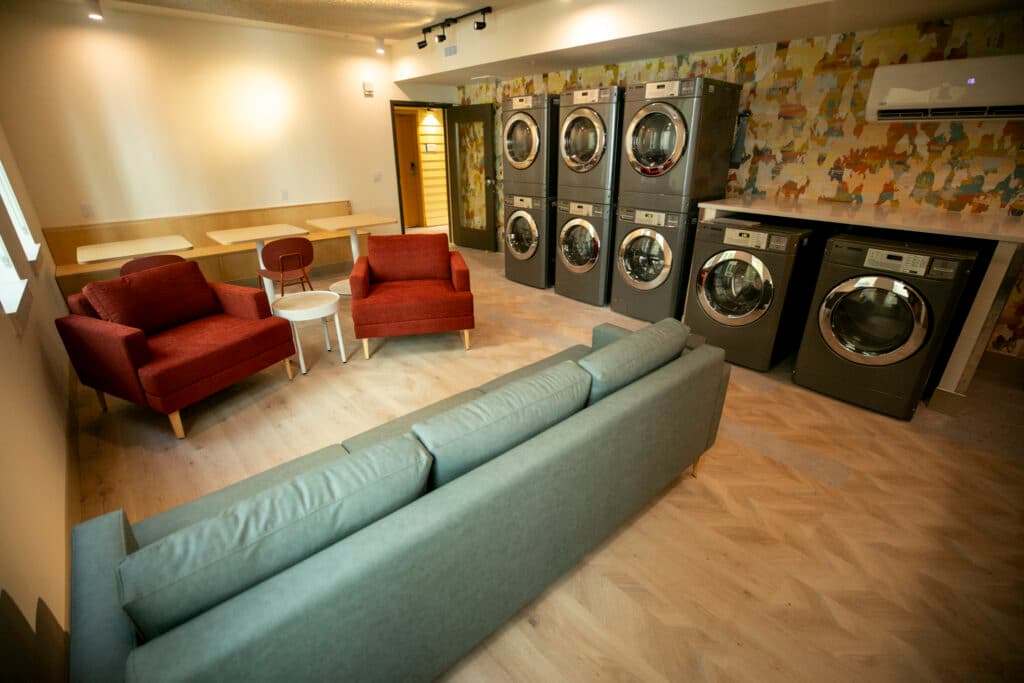
It’s not just motivation helping people move on to better situations. Case managers help people reconnect with estranged families, learn new skills or access resources that stay with them after they leave.
“We want people to tangibly meet goals along the way,” she said. “We want to end their homelessness permanently and generationally.”
The new building offers more on that front, too. Curry said they were able to build space specifically for case management, something that was lacking in the old, run-down motel.
